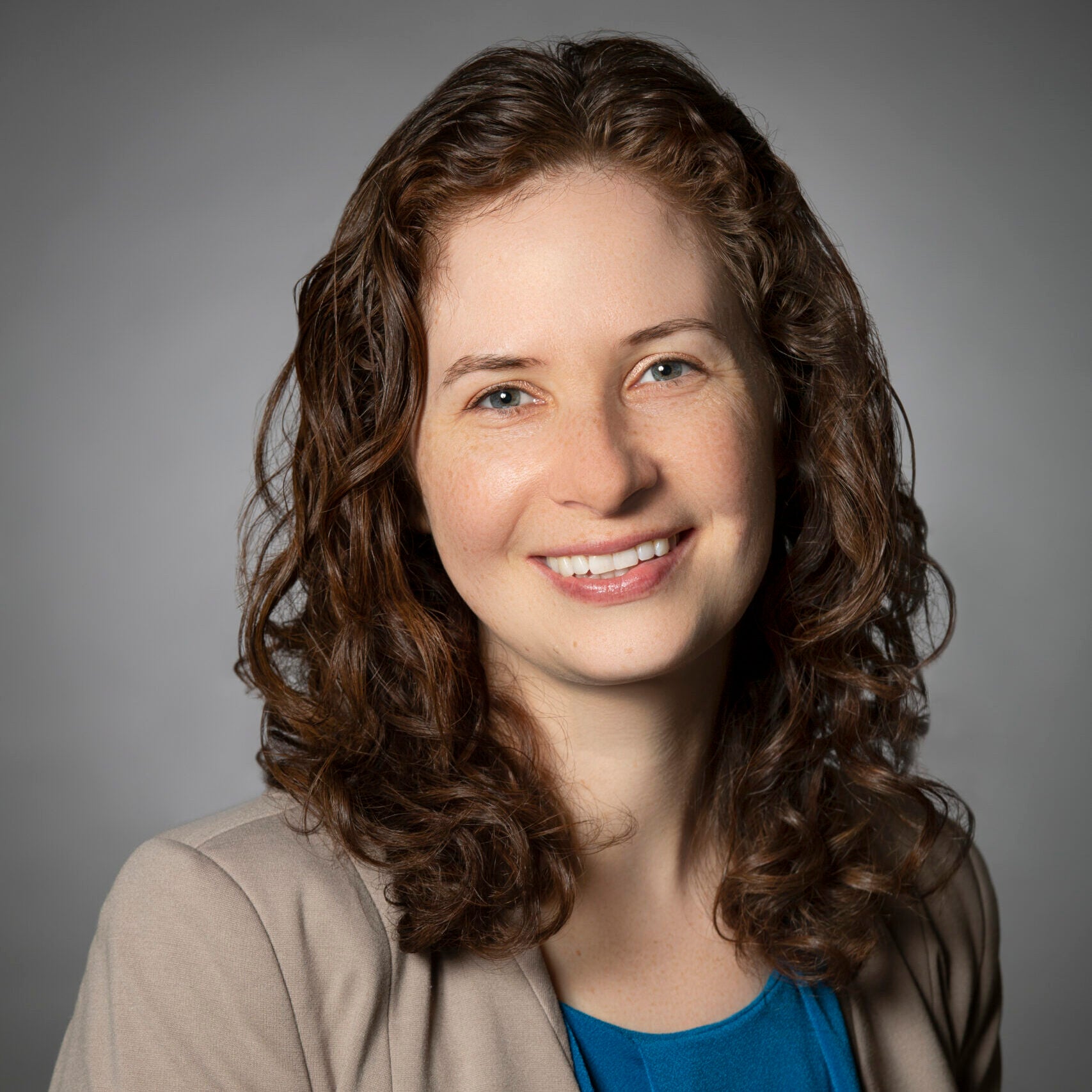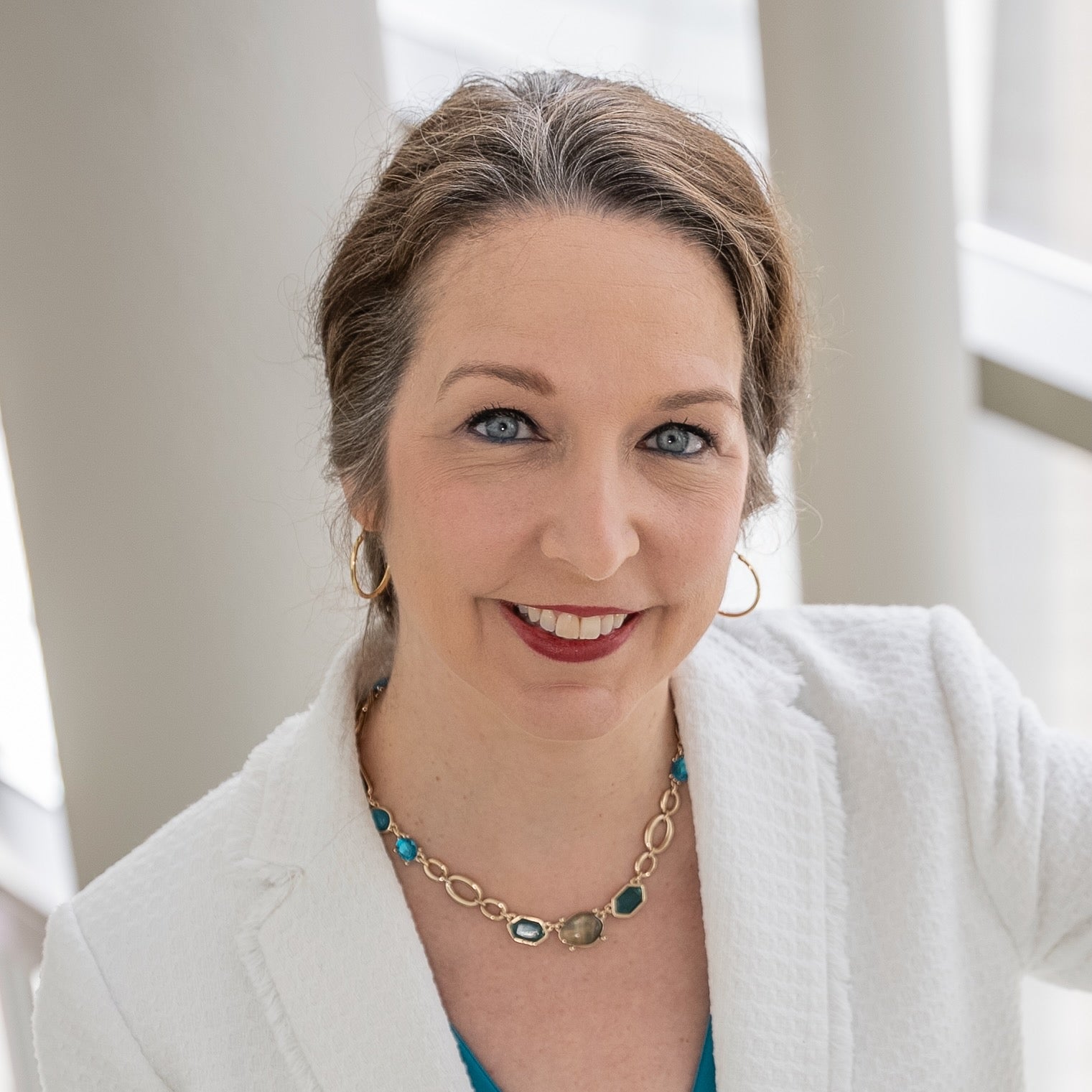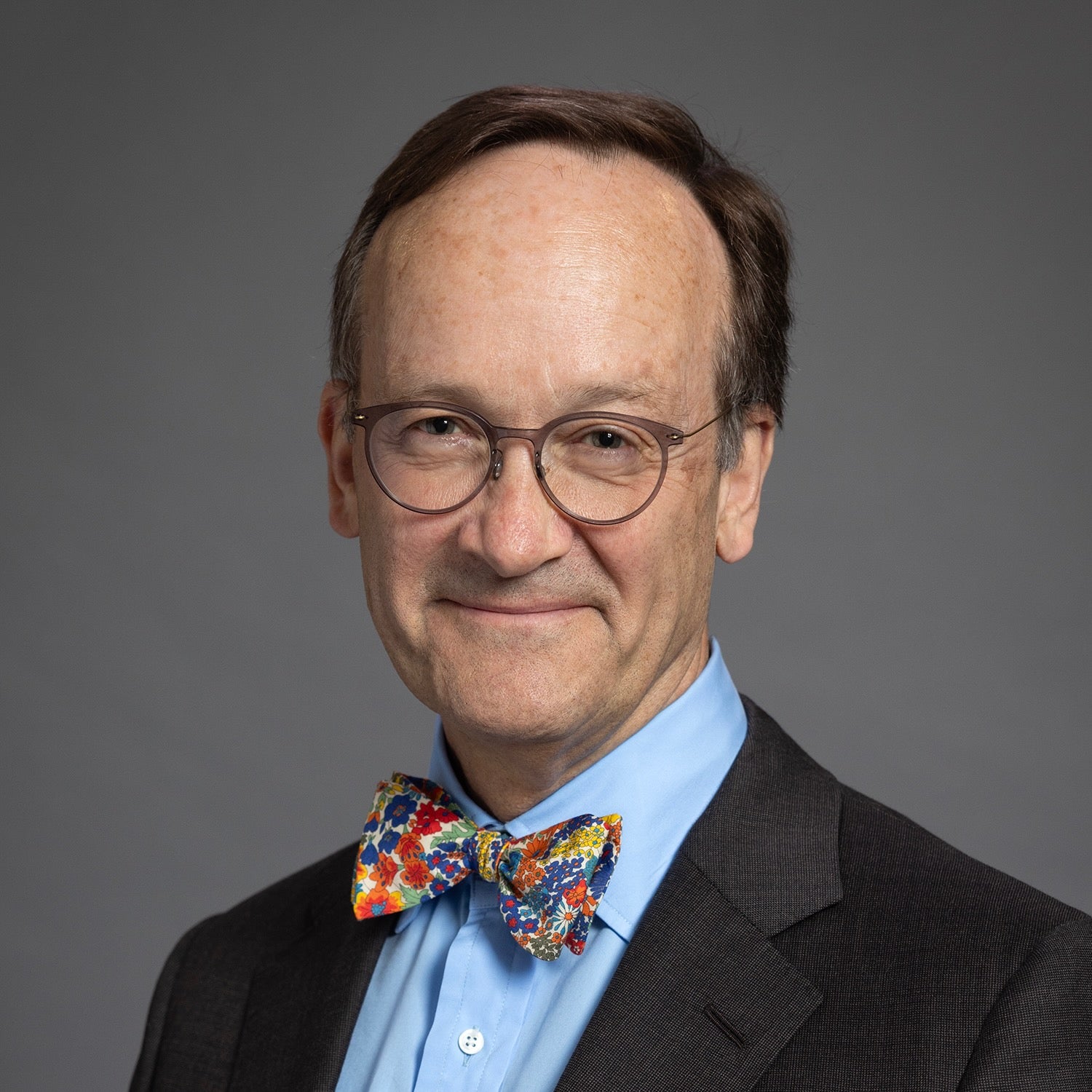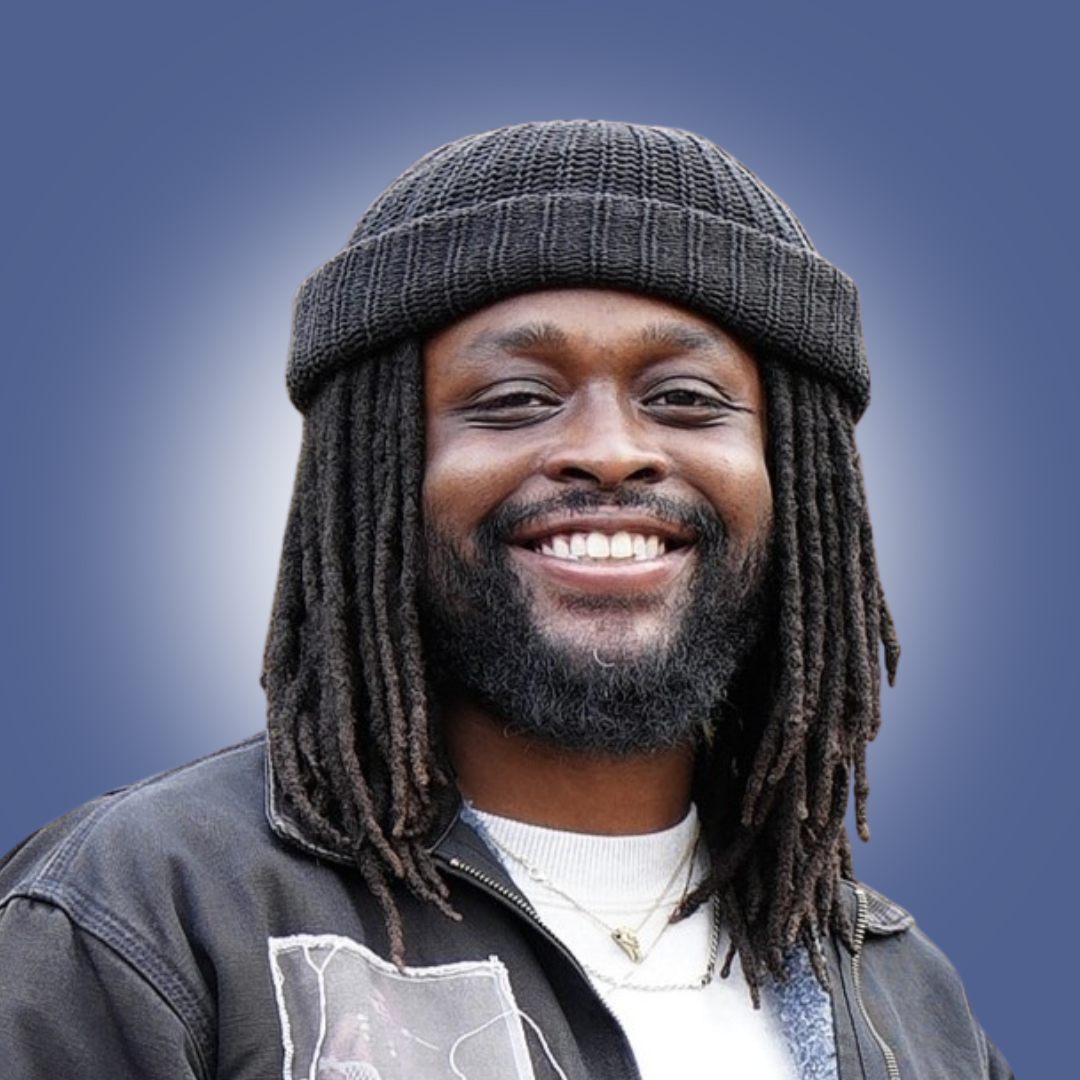Center Member Research Presentation: Jessica Harder, MD
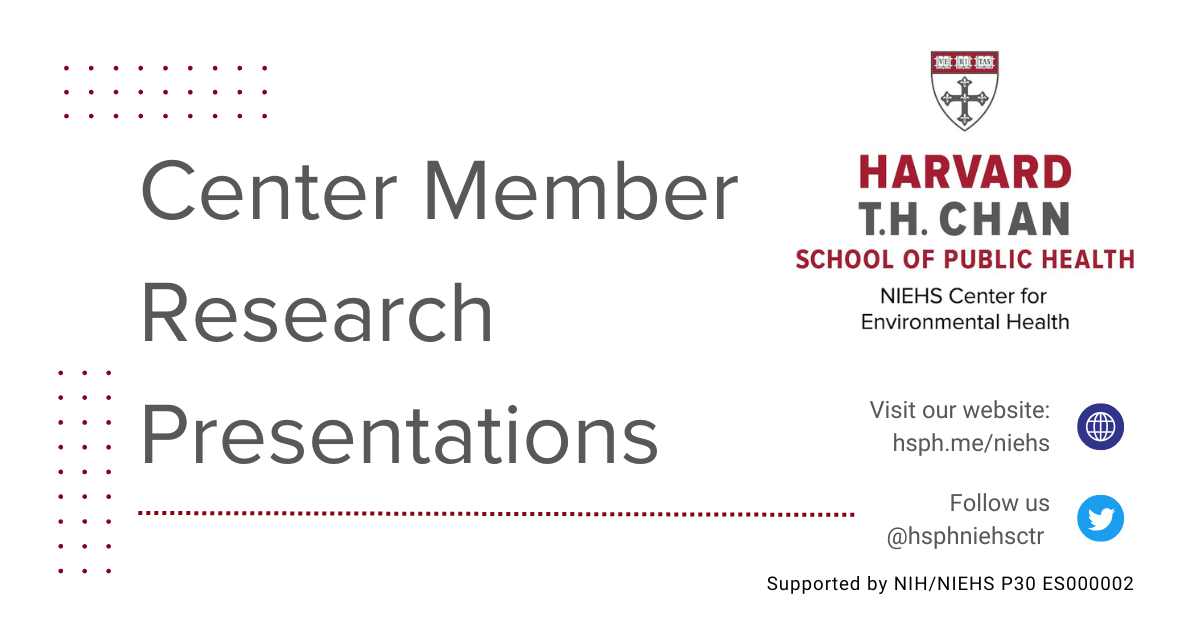
Join us for a Center Member Research Presentation by Dr. Jessica Harder on Environmental endocrine disrupting chemicals and neuropsychiatric outcomes in women. Following a brief presentation, there will be time for all participants to engage in a cross-disciplinary discussion with Dr. Harder and each other.
About the speaker: Jessica Harder, MD, is a neuropsychiatrist in the Department of Psychiatry at Mass General Brigham and Harvard Medical School. Dr. Harder’s research focuses on how environmental exposure to endocrine-disrupting chemicals affects neuropsychiatric symptoms in women across the lifespan, with an interest in how biological mechanisms, including gonadal hormone disruption and inflammatory signaling pathways, mediate these relationships. She holds an MD from Weill Cornell Medical College, completed psychiatry residency at Harvard Longwood, and fellowship in Behavioral Neurology and Neuropsychiatry at Brigham and Women’s Hospital’s Center for Brain/Mind Medicine.
This event will be held in person in HSPH Bldg. 1, 1302 and via Zoom. Register here
Speaker Information
Organizers
Developments in Postmarketing Safety Surveillance of Medical Products: Reflections from the FDA Sentinel Innovation Center

Join us on Wednesday, January 28th for a Department of Epidemiology seminar featuring Dr. Rishi Desai discussing Developments in Postmarketing Safety Surveillance of Medical Products: Reflections from the FDA Sentinel Innovation Center.
Abstract: The U.S. Food and Drug Administration (FDA) Sentinel Initiative—launched in 2008 under the FDA Amendments Act as the first national active-surveillance system for medical-product safety—has grown from a proof-of-concept pilot into the nation’s flagship regulatory grade evidence generation engine for pressing drug safety questions. In 2019, the FDA the US Food and Drug Administration prioritized more extensive electronic health records (EHR) integration to the existing claims-based Sentinel Distributed Databases and methodological innovations leveraging cutting edge data science approaches. This talk will provide an overview of the progress made by Sentinel’s Innovation Center in various domains including data infrastructure, information extraction, computable phenotyping, and confounding adjustment. Exemplary case studies will be discussed to highlight challenges and opportunities in applying the methodological innovations to inferential studies of medication safety.
Bio: Rishi J Desai, MS, PhD, is an Associate Professor of Medicine at Harvard (HMS/HSPH) and an Epidemiologist in the Division of Pharmacoepidemiology and Pharmacoeconomics at Brigham and Women’s Hospital. His research focuses on understanding the use of medications and resulting outcomes in routine care patients with chronic diseases. He has a special interest in methodological investigations to improve inference from non-randomized studies of medication effects. He is currently the Operations Lead for the FDA Sentinel Innovation Center. His work has been funded by the National Institute on Aging, the National Heart, Lung, and Blood Institute, and the Food and Drug Administration. He has authored >185 original research publications.
Speaker Information
Rishi Desai, MS, PhD
Organizers
Related Events
Complex Mixtures Working Group
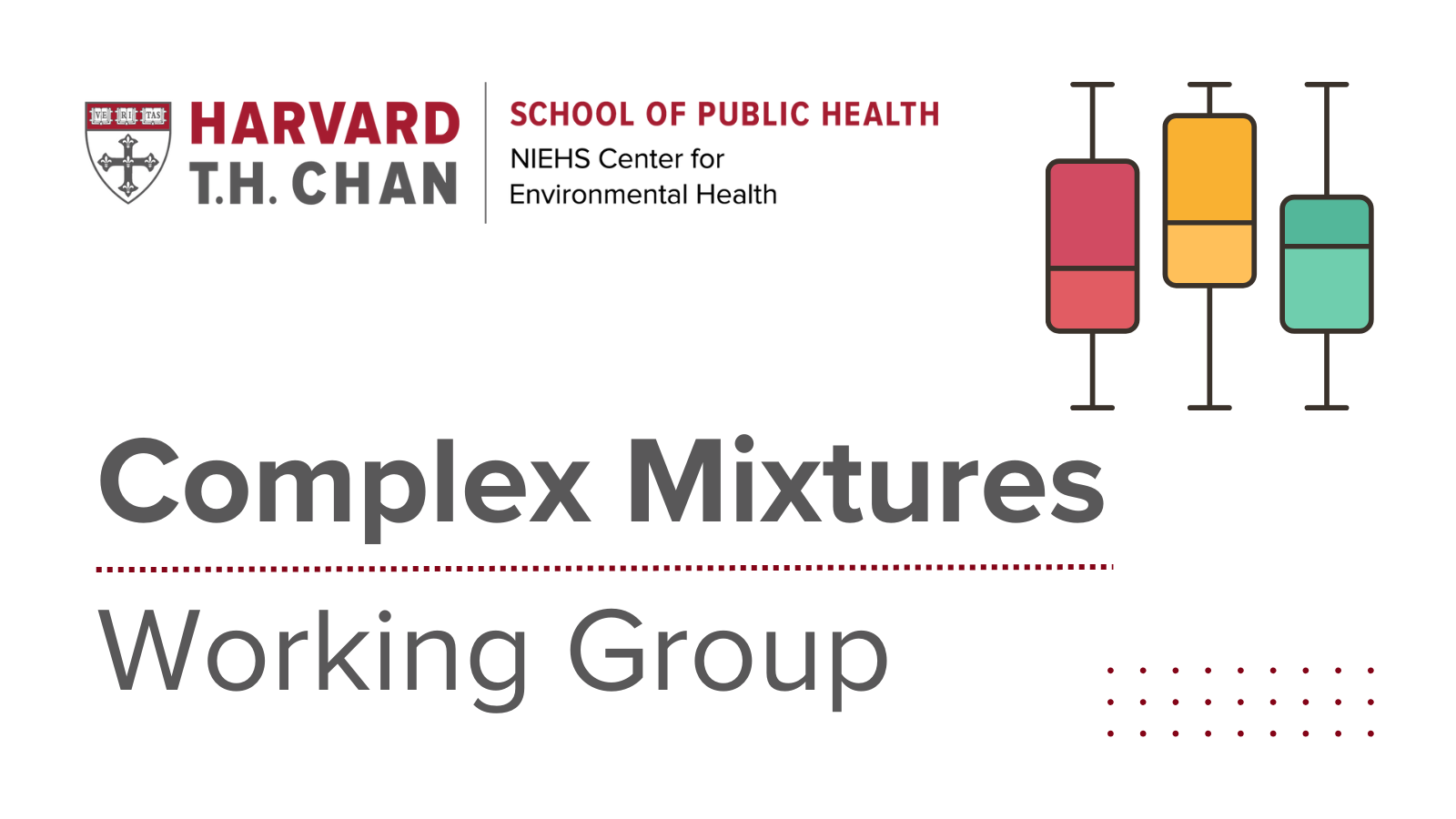
Join the Harvard Chan NIEHS Center’s working group on complex mixtures, held the last Monday of each month in HSPH Bldg. 1, 1302!
This monthly working group meeting is held in person. Members discuss a wide range of issues related to analyzing health effects of complex mixtures of exposures in environmental health. During the 2025-2026 academic year, the group will also work through complex mixtures challenges faced by individual members.
Please email niehsctr@hsph.harvard.edu to RSVP!
Speaker Information
Organizers
Leading public health schools today and tomorrow: A conversation with Deans Megan Ranney and Andrea Baccarelli

In this fireside chat, two deans of leading schools of public health will explore how to navigate a rapidly evolving landscape in public health education. Megan Ranney, Dean of Yale School of Public Health, will join Andrea Baccarelli, Dean of Harvard Chan School, to discuss preparing—and learning from—the next generation of public health students. From modeling constructive dialogue across diverse audiences, to examining the role of generative AI in classrooms and research, to equipping graduates for a shifting job market, the deans will share real-world insights.
Speaker Information
Megan Ranney

About the Organizers
Pressure Points: Leading academic medical centers in turbulent times

Pressure Points is a webinar series co-hosted by The Studio and Executive and Continuing Education at Harvard T.H. Chan School of Public Health bringing you inside the business of health care.
As health care organizations face sustained crisis conditions—policy, technology, and workforce related—how can leaders guide their institutions with clarity and resilience? Join health care leaders and experts for a candid conversation about what crisis leadership looks like today, and how to lead with strength when the stakes are highest.
Register for free to submit your questions.
An on-demand video will be posted after the event.
Speakers
Moderator
About The Organizers
The Harvard Chan Studio is the hub for the School’s premier in-person and live-streamed events. We convene global leaders in health policy, advocacy, industry, and research for insightful conversations about public health’s most pressing challenges and most promising solutions.
Executive and Continuing Education
Strengthen your expertise and build new capabilities to address pressing healthcare and public health challenges. Learn from industry experts and esteemed Harvard faculty and join a global community of peers driven to creating a healthier world.
Community-Engaged Research Working Group in Environmental Health
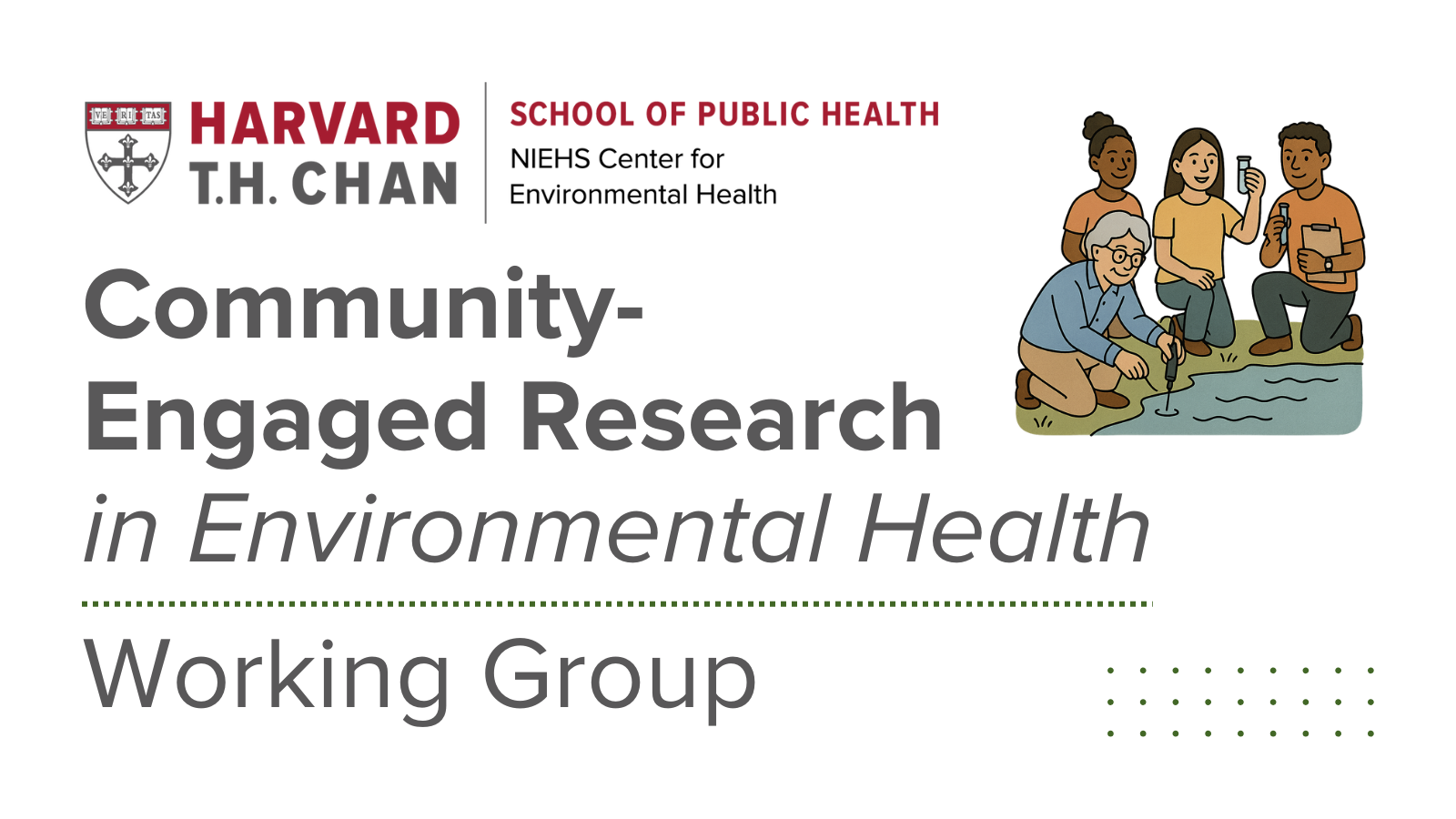
Join the Harvard Chan NIEHS Center’s working group on community-engaged research in environmental health!
This working group brings together faculty, trainees, students, and staff to discuss the methods and practice of conducting community-engaged research with a focus on environmental health.
We’ll meet in person in Building 1, 1302 on January 5, 1-1:50 pm.
January agenda: Present and select project ideas to receive Harvard Chan NIEHS Center Community Action Funds (up to $3,000)! Come to present or to select! If you have a project idea, complete this brief interest form by January 4, 11:59 pm ET, and come to the meeting ready to share your idea!
Please email niehsctr@hsph.harvard.edu to RSVP!
Speaker Information
Organizers
Annual ERC Pilot Project Symposium
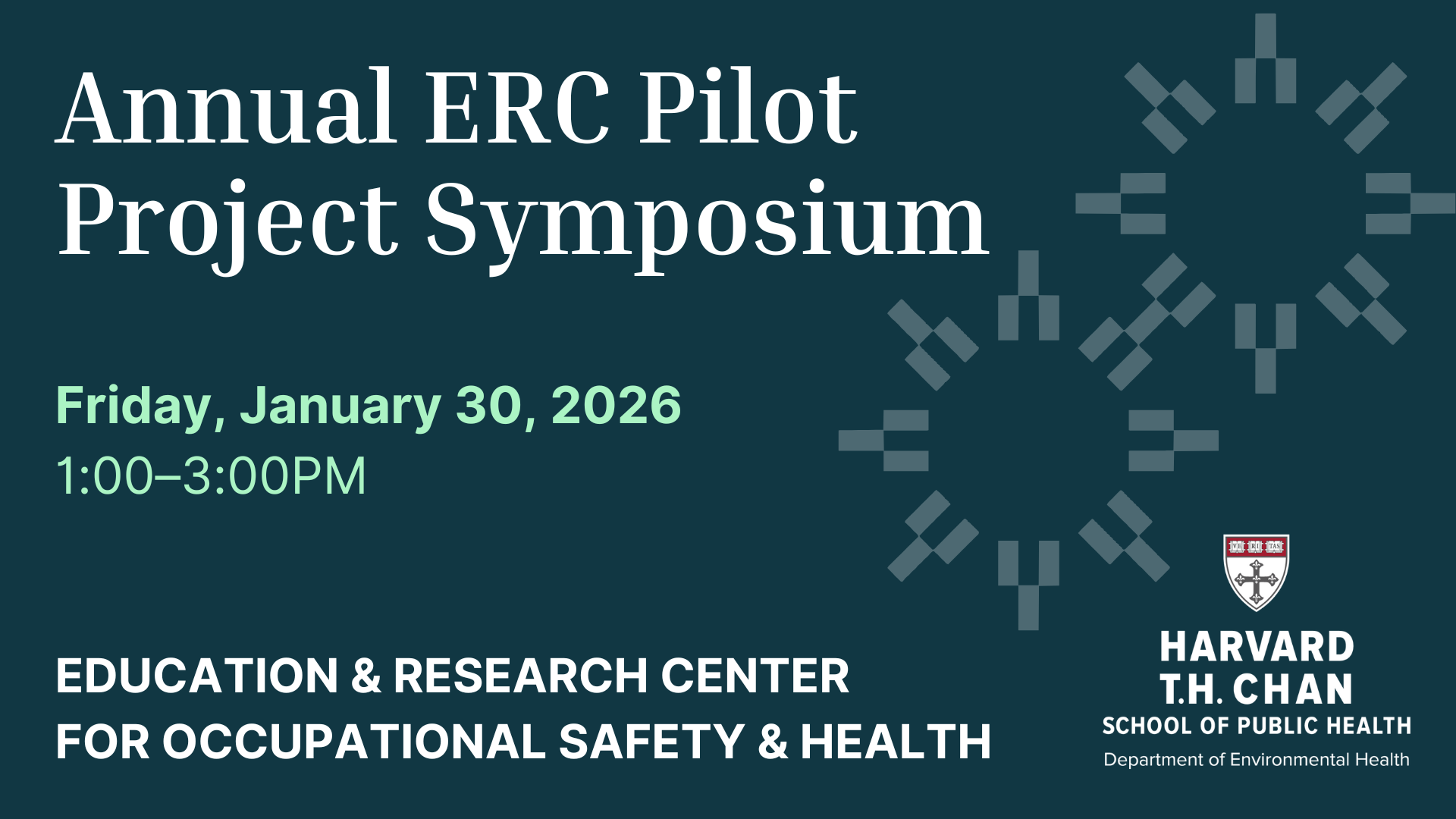
The Harvard Chan Education and Research Center (ERC) for Occupational Safety and Health invites you to the annual ERC Pilot Project Symposium to learn about recently completed Pilot Projects. These NIOSH-funded projects address concerns in one or more of the occupational safety and health areas of occupational hygiene, occupational epidemiology, occupational health services, occupational medicine, or occupational health nursing. Learn more.
This year’s presenters and topics:
- “Using Data for Injury and Violence Prevention Among Massachusetts Healthcare Workers,” by Devan Hawkins, ScD, Assistant Professor of Public Health, Director of Public Health Program, School of Arts and Sciences, Massachusetts College of Pharmacy and Health Sciences
- “Building a Requiem for Rikers Island: Examining the Carceral Harms Experienced by People within New York City’s Penal Colony,” by Jasmine Graves, PhD candidate in the Department of Social and Behavioral Sciences, Harvard T.H. Chan School of Public Health
- “Thriving from Work: Assessment and Impact of Older Worker Preferences,” by Maren Wright Voss, ScD, PhD, Instructor, Harvard Extension School
- “Quality of Life and Return to Work in Lung Cancer Survivors,” by Mi-Sun Lee, PhD, Research Scientist in the Department of Environmental Health, Harvard T.H. Chan School of Public Health
Location: Building 1, Room 1302 and Zoom.
Register: Click here to register.
Speaker Information
Organizers
Bacterial quorum sensing controls the CD8+ T cell response to skin commensals
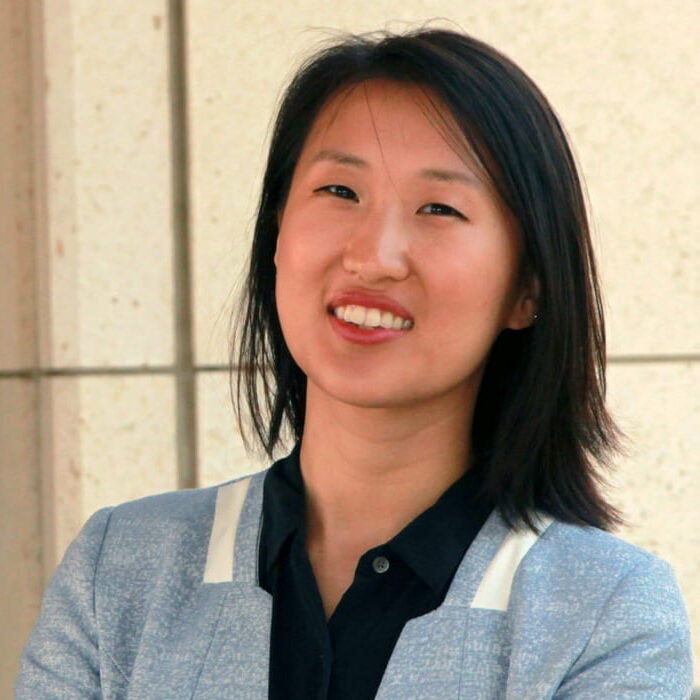
Title Talk
“Bacterial quorum sensing controls the CD8+ T cell response to skin commensals”
THIS SPEAKER WILL BE IN PERSON IN FXB 301.
The event will be hybrid.
Speaker Information
Some strains of Staphylococcus can elicit a CD8+ T cell response upon skin colonization, without infection or inflammation. Colonizing skin with engineered versions of these strains can redirect the host T cells against any antigen of choice, protecting the host from cancer or systemic infection. We now dissect the bacterial and host molecular mechanisms underlying this unusual commensal-specific T cell response. We aim to understand the fundamental mechanisms of skin microbiome-immune crosstalk and engineer this crosstalk into novel immunotherapies.
Monday Nutrition Seminar | So the US food system is certainly broken; what can we reasonably do about it, given nutritional and geophysical constraints on this system?
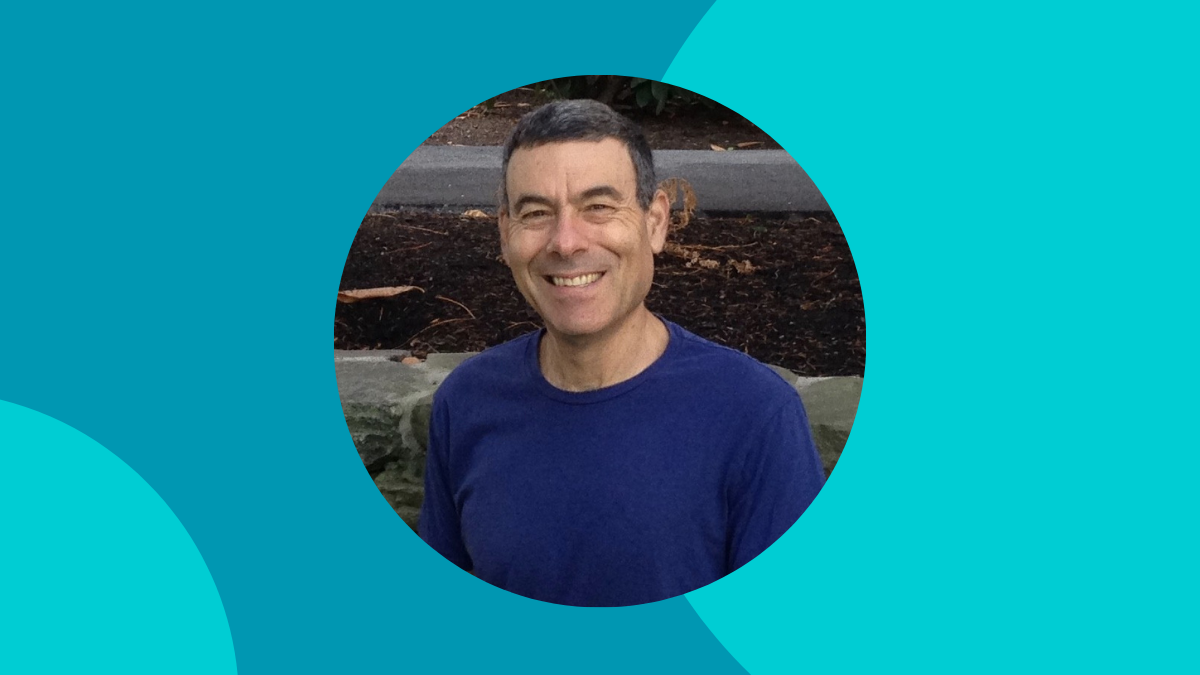
Please join the Department of Nutrition for the Monday Nutrition Seminar featuring Gidon Eshel, PhD, MA, MPhil, Research Professor at Bard College. Dr. Eshel’s talk—”So the US food system is certainly broken; what can we reasonably do about it, given nutritional and geophysical constraints on this system?”—will take place on December 15, 2025 at 1:00pm ET in FXB G-13 and via Zoom (registration is required).
The Monday Nutrition Seminar Series is free and open to the public. If you plan to attend this event and do not have an active HUID, please fill out the registration form by 3:00 p.m. ET on the Friday before the seminar to request a visitor pass to access the building.
Seminar speakers share their perspectives, they do not speak for Harvard.
Speaker Information
Organizers
Awe on the Margins: Youth Perspectives on the (im)possibilities of Human Flourishing

On Wednesday, April 15th, 2026, from 1-1:50 p.m. in FXB G13 and online, all are welcome to join us for the sixth and final installment in our Virtues for Well-being Seminar Series, featuring Dr. Demond Hill.
Lunch provided.
Seminar Description
Awe—an emotional response to vastness that transcends our ordinary frames of reference—has the power to transform perspectives, foster human flourishing, and enhance well-being. Yet little is known about where awe emerges in marginalized urban contexts, who can access it, and how it might disrupt structural inequality. This seminar asks: What would it take for us to be more honest with the lives we are living, living on, stepping over, and forgetting?
Drawing from the first year of a three-year youth participatory action research project with 20 Black and Brown high school students in Boston, this work explores how youth make sense of, complicate, experience, locate, and mobilize awe. Through an after-school awe and flourishing literacy program, students embarked on awe excursions, documented their insights, and designed awe-inspiring spaces. This project cultivates healing, civic engagement, and bold visions for communal health equity. Together, we will consider how “actionable awe” can transform “awe-ful” spaces into “awe-inspiring” ones and illuminate new pathways for collective flourishing.
Speaker Biography
Dr. Demond M. Hill is an Assistant Professor of Health Equity at Tufts University in the Eliot-Pearson Department of Child Study and Human Development. His research, grounded in transdisciplinary, critical, applied, humanizing-based approaches, focuses on the mental health and well-being of marginalized children, youth, and their families, with a particular emphasis on Black populations. Dr. Hill collaborates with communities to promote and protect opportunities for awe, belonging, and human flourishing among Black and Brown communities within systemic inequality. His work centers marginalized communities’ voices and lived experiences and incorporates youth- and community-based participatory action approaches to identify and strengthen protective factors that inform policy and promote mental health equity.
